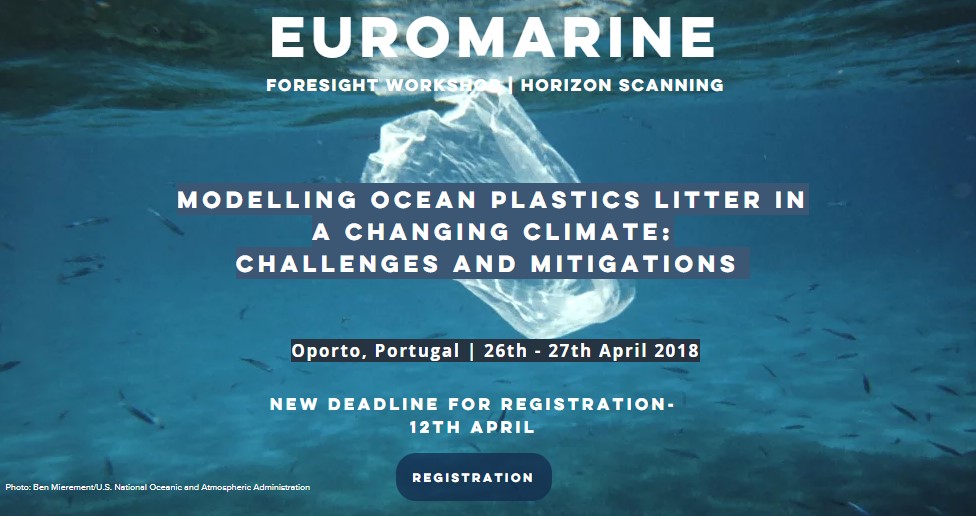Modelling ocean plastic litter in a changing climate: challenges and mitigations

The workshop will focus on a number of high profile keynote speakers and the goal is to provide a forum of debate regarding the emerging issue of pollution by plastics in the marine environment and together discuss the challenges and potential of using simulating tools (modelling) to help predicting the potential effects of plastics (from nanoplastics to macroplastics) in marine ecossystems. It will be host in Porto on the 26-27th April.
OBJECTIVES
- To compile the type of data available on plastic quantity and quality in the ocean;
- to identify patterns and tendencies of plastic distribution in the ocean;
- to gather data on the type of effects caused by plastic in marine organisms;
- to identify which type of models would be more suitable to understand and predict the effects of plastic in marine organisms;
- to identify which climatic stressors (temperature, salinity, ocean acidification, wind, anoxia, sea level rise, etc) are expected to interfere more with plastic breakage, decomposition and circulation;
- to come up with potential mitigation measures.
EXPECTED OUTCOMES
- 1 position paper
- 1 draft proposal to apply within a relevant European Call
- To establish a network of interest under the subject Models to Understand plastic impacts in the Ocean – MODUNDER network
EXPECTED IMPACTS
The outputs from this workshop will:
- highlight and implement the need to compile and systematize in a general dataset the available and forthcoming empirical data on plastic pollution, discriminating the different types of plastic;
- identify priority research questions within the topic;
- infer short- and long-term effects of plastics in marine systems;
- propose mitigation measures within a IEA- Integrated Environmental Assessment perspective, i.e., producing and communicating future-oriented, policy-relevant information on key interactions between marine plastic pollution, natural environment and human society.


 PT
PT ES
ES FR
FR